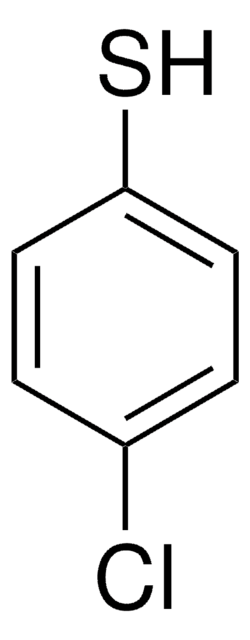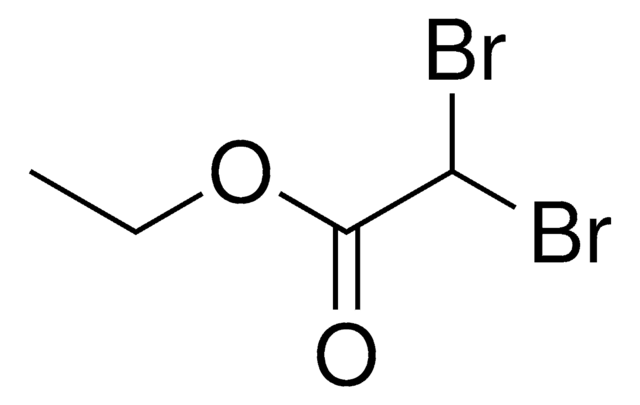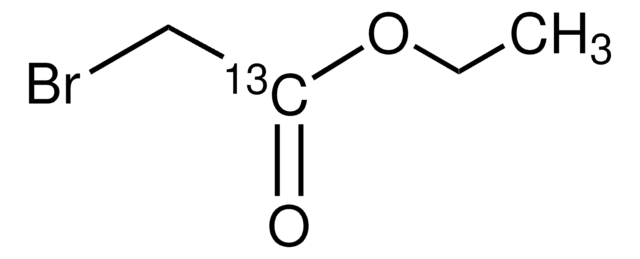133973
Ethyl bromoacetate
reagent grade, 98%
Synonyme(s) :
Bromoacetic acid ethyl ester, Ethyl 2-bromoacetate
About This Item
Produits recommandés
Qualité
reagent grade
Niveau de qualité
Pression de vapeur
2.6 mmHg ( 25 °C)
Pureté
98%
Forme
liquid
Indice de réfraction
n20/D 1.451 (lit.)
Point d'ébullition
159 °C (lit.)
Solubilité
water: insoluble
Densité
1.506 g/mL at 25 °C (lit.)
Chaîne SMILES
CCOC(=O)CBr
InChI
1S/C4H7BrO2/c1-2-7-4(6)3-5/h2-3H2,1H3
Clé InChI
PQJJJMRNHATNKG-UHFFFAOYSA-N
Vous recherchez des produits similaires ? Visite Guide de comparaison des produits
Description générale
Application
Mention d'avertissement
Danger
Mentions de danger
Conseils de prudence
Classification des risques
Acute Tox. 1 Dermal - Acute Tox. 2 Inhalation - Acute Tox. 2 Oral - Flam. Liq. 3
Code de la classe de stockage
3 - Flammable liquids
Classe de danger pour l'eau (WGK)
WGK 3
Point d'éclair (°F)
116.6 °F - closed cup
Point d'éclair (°C)
47 °C - closed cup
Équipement de protection individuelle
Eyeshields, Faceshields, Gloves, type ABEK (EN14387) respirator filter
Certificats d'analyse (COA)
Recherchez un Certificats d'analyse (COA) en saisissant le numéro de lot du produit. Les numéros de lot figurent sur l'étiquette du produit après les mots "Lot" ou "Batch".
Déjà en possession de ce produit ?
Retrouvez la documentation relative aux produits que vous avez récemment achetés dans la Bibliothèque de documents.
Les clients ont également consulté
Notre équipe de scientifiques dispose d'une expérience dans tous les secteurs de la recherche, notamment en sciences de la vie, science des matériaux, synthèse chimique, chromatographie, analyse et dans de nombreux autres domaines..
Contacter notre Service technique
















